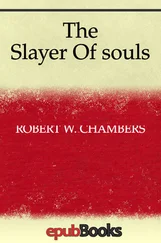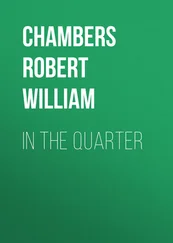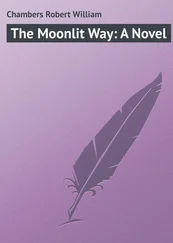Robert Chambers - The Restless Sex
Здесь есть возможность читать онлайн «Robert Chambers - The Restless Sex» — ознакомительный отрывок электронной книги совершенно бесплатно, а после прочтения отрывка купить полную версию. В некоторых случаях можно слушать аудио, скачать через торрент в формате fb2 и присутствует краткое содержание. Жанр: foreign_prose, на английском языке. Описание произведения, (предисловие) а так же отзывы посетителей доступны на портале библиотеки ЛибКат.
- Название:The Restless Sex
- Автор:
- Жанр:
- Год:неизвестен
- ISBN:нет данных
- Рейтинг книги:4 / 5. Голосов: 1
-
Избранное:Добавить в избранное
- Отзывы:
-
Ваша оценка:
- 80
- 1
- 2
- 3
- 4
- 5
The Restless Sex: краткое содержание, описание и аннотация
Предлагаем к чтению аннотацию, описание, краткое содержание или предисловие (зависит от того, что написал сам автор книги «The Restless Sex»). Если вы не нашли необходимую информацию о книге — напишите в комментариях, мы постараемся отыскать её.
The Restless Sex — читать онлайн ознакомительный отрывок
Ниже представлен текст книги, разбитый по страницам. Система сохранения места последней прочитанной страницы, позволяет с удобством читать онлайн бесплатно книгу «The Restless Sex», без необходимости каждый раз заново искать на чём Вы остановились. Поставьте закладку, и сможете в любой момент перейти на страницу, на которой закончили чтение.
Интервал:
Закладка:
It is drama, comedy, farce, tragedy, this inevitable awakening; it is the alternate elucidation and deepening of mysteries; it is a day of clear, keen reasoning succeeding a day of illogical caprice; an hour aquiver with undreamed-of mental torture followed by an hour of spiritual exaltation; it is the era of magnificent aspiration, of inexplicable fear, of lofty abnegations, of fierce egotisms, of dreams and of convictions, of faiths for which youth dies; and, alas, it is a day of pitiless development which leaves the shadowy memory of faith lingering in the brain, and, on the lips, a smile.
And, amid such emotions, such impulses, such desires, fears, aspirations, hopes, regrets, the average boy puts on that Nessus coat called manhood. And he has, in his temporarily dislocated and unadjusted brain, neither the time nor the patience, nor the interest, nor the logic at his command necessary to see and understand what is happening under his aspiring and heavenward-tilted nose. Only the clouds enrapture him; where every star beckons him he responds in a passion of endeavour.
And so he begins the inevitable climb toward the moon – the path which every man born upon the earth has trodden far or only a little way, but the path all men at least have tried.
In his freshman year at Harvard, he got drunk. The episode was quite inadvertent on his part – one of those accidents incident to the vile, claret-coloured "punches" offered by some young idiot in "honour" of his own birthday.
The Cambridge police sheltered him over night; his fine was over-subscribed; he explored the depths of hell in consequence of the affair, endured the agony of shame, remorse, and self-loathing to the physical and mental limit, and eventually recovered, regarding himself as a reformed criminal with a shattered past.
However, the youthful gloom and melancholy dignity with which this clothed him had a faint and not entirely unpleasant flavour – as one who might say, "I have lived and learned. There is the sad wisdom of worldly things within me." But he cut out alcohol. It being the fashion at that time to shrug away an offered cup, he found little difficulty in avoiding it.
In his Sophomore year, he met the inevitable young person. And, after all that had been told him, all that he had disdainfully pictured to himself, did not recognize her when he met her.
It was one of those episodes which may end any way. And it ended, of course, in one way or another. But it did end.
Thus the limited world he moved in began to wear away the soft-rounded contours of boyhood; he learned a little about men, nothing whatever about women, but was inclined to consider that he understood them sadly and perfectly. He wrote several plays, novels and poems to amuse himself; wrote articles for the college periodicals, when he was not too busy training with the baseball squad or playing tennis, or lounging through those golden and enchanted hours when the smoke of undergraduate pipes spins a magic haze over life, enveloping books and comrades in that exquisite and softly brilliant web which never tears, never fades in memory while life endures.
He made many friends; he visited many homes; he failed sometimes, but more often he made good in whatever he endeavoured.
His father came on to Cambridge several times – always when his son requested it – and he knew the sympathy of his father in days of triumph, and he understood his father's unshaken belief in his only son when that son, for the moment, faltered.
For he had confided in his father the episodes of the punch and the young person. Never had his father and he been closer together in mind and spirit than after that confession.
In spite of several advances made by Chiltern Grismer, whose son, Oswald, was also at Harvard and a popular man in his class, John Cleland remained politely unreceptive; and there were no social amenities exchanged. Jim Cleland and Oswald Grismer did not visit each other, although friendly enough at Cambridge. Cleland Senior made no particular effort to discourage any such friendly footing, and he was not inclined to judge young Grismer by his father. He merely remained unresponsive.
In such cases, he who makes the advances interprets their non-success according to his own nature. And Grismer concluded that he had been a victim of insidious guile and sharp practice, and that John Cleland had taken Stephanie to his heart only after he had learned that, some day, she would inherit the Quest fortune from her eccentric relative.
Chagrin and sullen irritation against Cleland had possessed him since he first learned of this inheritance; and he nourished both until they grew into a dull, watchful anger. And he waited for something or other that might in some way offer him a chance to repair the vital mistake he had made in his attitude toward the child.
But Cleland gave him no opening whatever; Grismer's social advances were amiably ignored. And it became plainer and plainer to Grismer, as he interpreted the situation, that John Cleland was planning to unite, through his son Jim, the comfortable Cleland income with the Quest millions, and to elbow everybody else out of the way.
"The philanthropic hypocrite," mused Grismer, still smarting from a note expressing civil regrets in reply to an invitation to Stephanie and Jim to join them after church for a motor trip to Lakewood.
"Can't they come?" inquired Oswald.
"Previous engagement," snapped Grismer, tearing up the note. His wife, an invalid, with stringy hair and spots on her face, remarked with resignation that the Clelands were too stylish to care about plain, Christian people.
"Stylish," repeated Grismer, "I've got ten dollars to Cleland's one. I can put on style enough to swamp him if I've a mind to! – m-m-m'yes, if I've a mind to."
"Why don't you?" inquired Oswald, with a malicious side glance at his father's frock coat and ready-made cravat. "Chuck the religious game and wear spats and a topper! It's a better graft, governor."
Chiltern Grismer, only partly attentive to his son's impudence, turned a fierce, preoccupied glance upon him. But his mind was still intrigued with that word "stylish." It began to enrage him.
He repeated it aloud once or twice, sneeringly:
"So you think we may not be sufficiently stylish to suit the Clelands – or that brat they picked out of the sewer? M-m-m'yes, out of an east-side sewer!"
Oswald pricked up his intelligent and rather pointed ears.
"What brat?" he inquired.
Chiltern Grismer had never told his son the story of Stephanie Quest. In the beginning, the boy had been too young, and there seemed to be no particular reason for telling him. Later, when Grismer suddenly developed ambitions in behalf of his son for the Quest fortune, he did not say anything about Stephanie's origin, fearing that it might prejudice his son.
Now, he suddenly concluded to tell him, not from spite entirely, nor to satisfy his increasing resentment against Cleland; but because Oswald would, some day, inherit the Grismer money. And it might be just as well to prime him now, in the event that any of the Clelands should ever start to reopen the case which had deprived Jessie Grismer of her own inheritance so many years ago.
The young fellow listened with languid astonishment as the links of the story, very carefully and morally polished, were displayed by his father for his instruction and edification.
"That is the sort of stylish people they are," concluded Grismer, making an abrupt end. "Let it be a warning to you to keep your eye on the Clelands; for a man that calls himself a philanthropist, and is sharp enough to pick out an heiress from the gutter, will bear watching! – m-m-m'yes, indeed, he certainly will bear watching."
Mrs. Grismer, who was knitting with chilly fingers, sighed.
Читать дальшеИнтервал:
Закладка:
Похожие книги на «The Restless Sex»
Представляем Вашему вниманию похожие книги на «The Restless Sex» списком для выбора. Мы отобрали схожую по названию и смыслу литературу в надежде предоставить читателям больше вариантов отыскать новые, интересные, ещё непрочитанные произведения.
Обсуждение, отзывы о книге «The Restless Sex» и просто собственные мнения читателей. Оставьте ваши комментарии, напишите, что Вы думаете о произведении, его смысле или главных героях. Укажите что конкретно понравилось, а что нет, и почему Вы так считаете.












